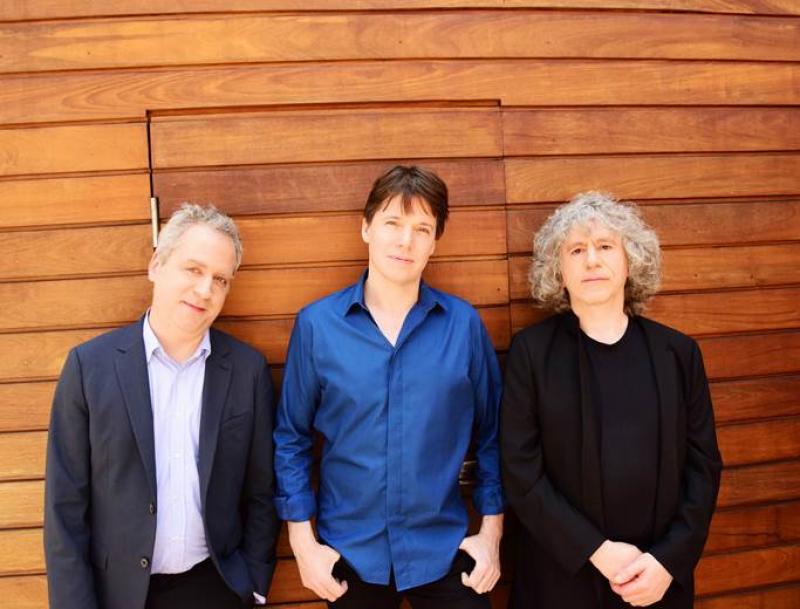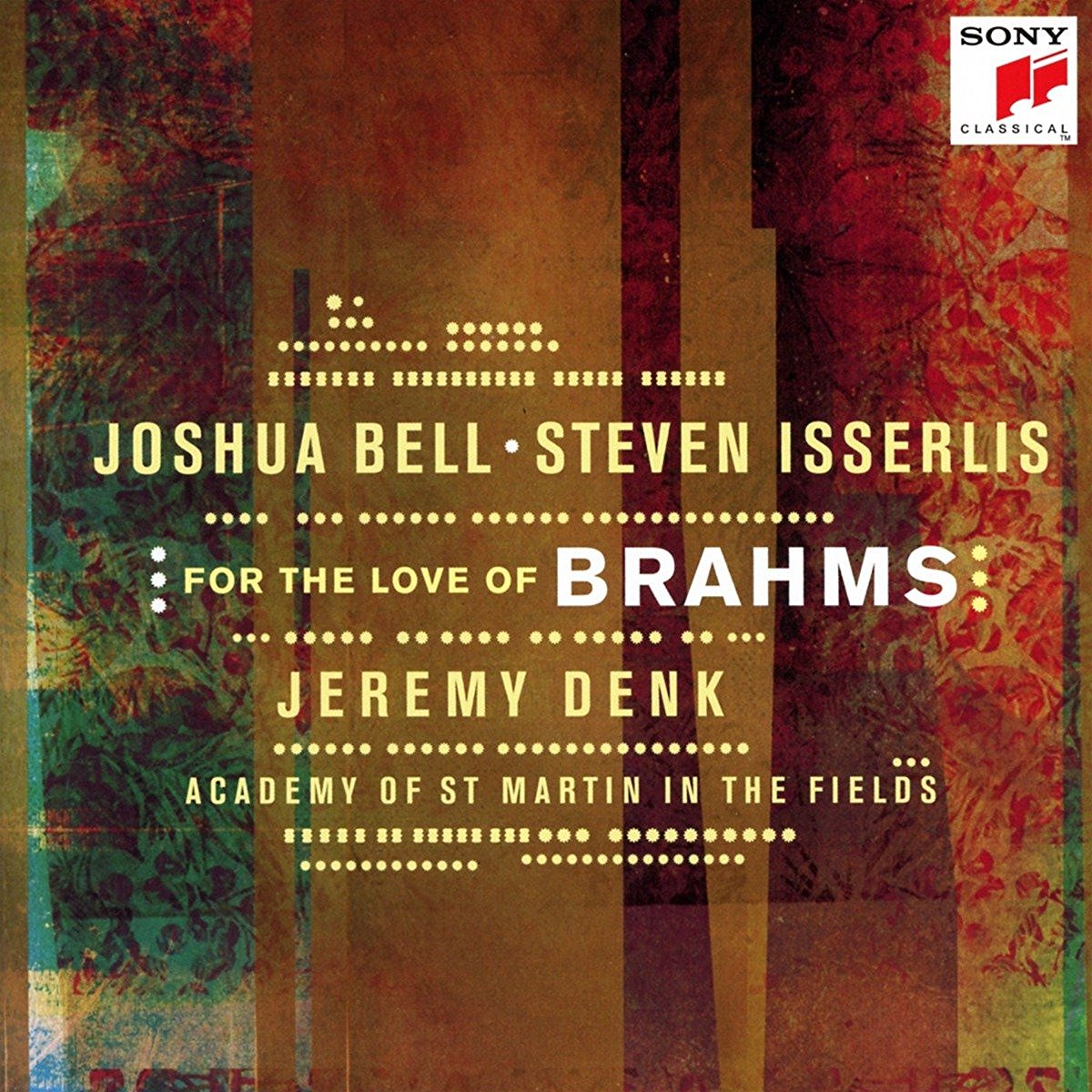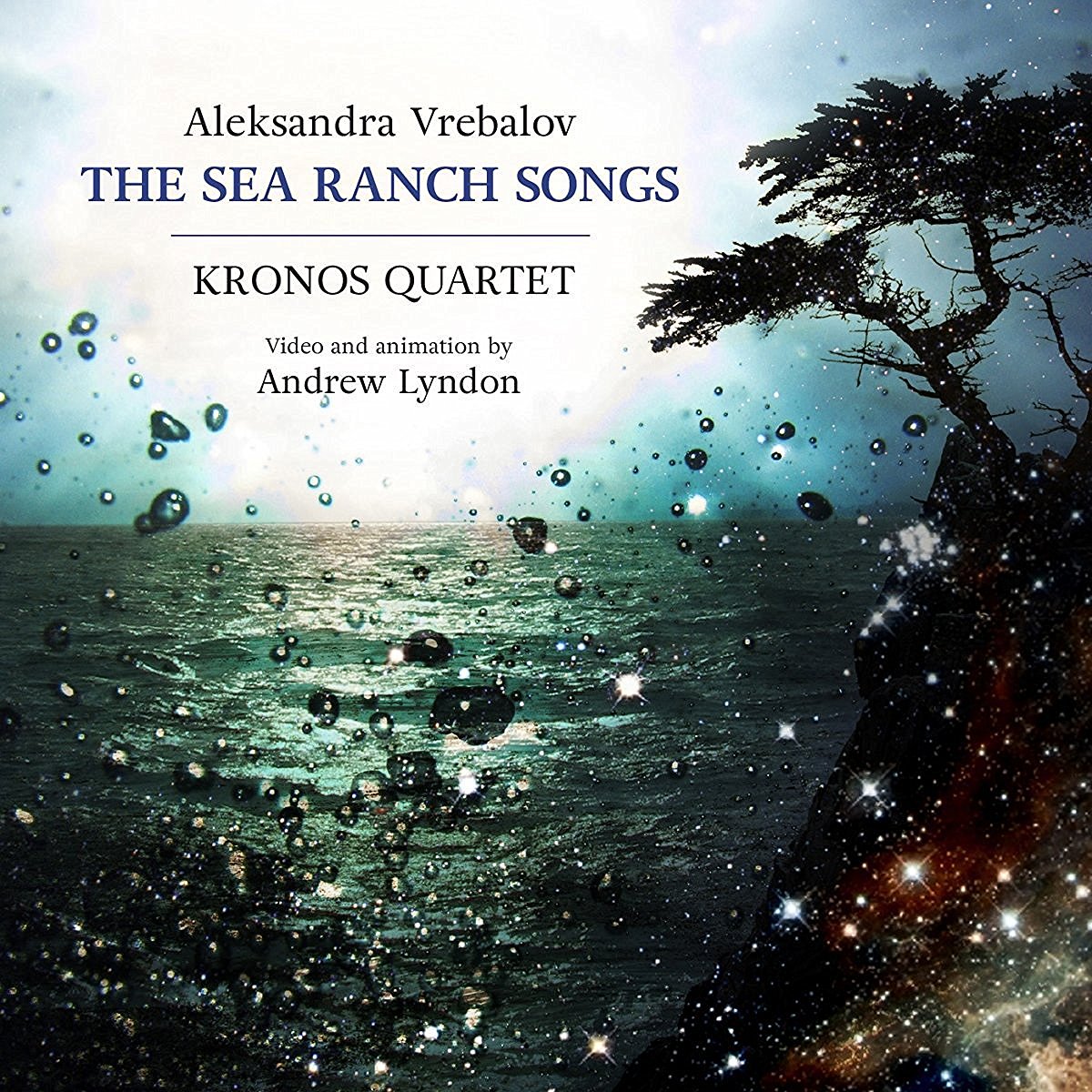Classical CDs Weekly: Brahms, Steve Reich, Aleksandra Vrebalov | reviews, news & interviews
Classical CDs Weekly: Brahms, Steve Reich, Aleksandra Vrebalov
Classical CDs Weekly: Brahms, Steve Reich, Aleksandra Vrebalov
Three friends celebrate a German romantic, plus American minimalism and a coastal landscape arranged for string quartet

 Brahms: Double Concerto, Piano Trio No. 1 (1854 version) Joshua Bell (violin and director), Steven Isserlis (cello), Jeremy Denk (piano), Academy of St Martin in the Fields (Sony)
Brahms: Double Concerto, Piano Trio No. 1 (1854 version) Joshua Bell (violin and director), Steven Isserlis (cello), Jeremy Denk (piano), Academy of St Martin in the Fields (Sony)
Brahms’s Double Concerto can be unfairly maligned as a dull, downbeat coda to a long compositional career, but it’s much better than that. Written partly as a peace offering to the violinist Joseph Joachim, this is a piece which takes time to work its magic. It gets a warmly affirmative reading from Joshua Bell and Steven Isserlis. They’ve been playing together for years, so it’s little surprise that this performance feels so conversational, so intimate, an agreeable meeting between close friends who haven’t caught up for a few months. Isserlis’s opening cello solo is comically gruff, Bell’s response conciliatory and cheery. After which it’s pretty much plain sailing, relationship-wise. The slow movement sings and the finale’s unexpected major key coda is a charmer. Quite superb, Bell also directing a lithe, responsive Academy of St Martin in the Fields. I love this work. Brahms’s Violin Concerto can feel just a touch too big, too epic. The Double Concerto says as much, rather more succinctly. A touching encore is the “Langsam” from Schumann’s much-maligned Violin Concerto (also written for Joachim) – here played with a brief codetta supplied by Britten in 1957.
Just when you thought things couldn’t get any starrier, pianist Jeremy Denk turns up to do the honours in the original version of Brahms’s youthful B major Piano Trio. It was radically revised many years later, but Isserlis’s typically readable sleeve notes make a persuasive case for the earlier score’s charms. This is real chamber playing, not three stars reluctantly thrown together through contractual obligation. Denk’s soft, resonant chords at the start of the slow movement are worth the disc price on their own.
 Steve Reich: Double Sextet, Radio Rewrite Ensemble Signal/Brad Lubman (Harmonia Mundi)
Steve Reich: Double Sextet, Radio Rewrite Ensemble Signal/Brad Lubman (Harmonia Mundi)
The ever-youthful Steve Reich has just turned 80. He’s everywhere at the moment. Double Sextet was written in 2007, Reich returning to a device he’d used since the 1960s, of combining live musicians with pre-recorded tape. This sensational recording actually uses another six musicians playing live – a luxury, and one which surely contributes to the performance’s spontaneity and warmth. David Lang’s sleeve note points out that by doubling the forces in the sextet (flute, clarinet, violin, cello, piano and percussion), Reich ends up with something not dissimilar in sound to a classical orchestra. The string quartet adds a delicious layer of colour in the central slow section, but the scoring doesn’t betray any softening of approach. Double Sextet is truly exhilarating, uplifting music, its sustained wind and string chords sounding out over a series of jazzy percussion and piano riffs. The positivity is intoxicating; this is smart feelgood music which never feels glib. Brad Lubman’s intrepid Ensemble Signal play with an accuracy and passion which defies description.
Just as enjoyable is Radio Rewrite, a work prompted by a Johnny Greenwood performance of Electric Counterpoint. Reich was sufficiently impressed to include allusions to a pair of Radiohead songs in the work. They’re not easy to spot, though the sharp-eared may pick up a hint of Kid A’s “Everything in Its Right Place” in the opening fast section. It’s much more entertaining than Radiohead’s recent output. Enjoy the work as another prime chunk of vintage Reich and marvel at this ensemble’s sheer brilliance. Pianists David Friend and Oliver Hagen are outstanding. Reich’s back catalogue has been well served so far by Nonesuch and ECM, and it’s good to see other labels supporting the composer’s cause.
 Aleksandra Vrebalov: The Sea Ranch Songs Kronos Quartet, plus video and animation by Andrew Lyndon (Canteloupe)
Aleksandra Vrebalov: The Sea Ranch Songs Kronos Quartet, plus video and animation by Andrew Lyndon (Canteloupe)
Messiaen’s Des canyons aux étoiles is probably the greatest musical work inspired by an American landscape. Aleksandra Vrebalov’s The Sea Ranch Songs is a smaller, more intimate affair, celebrating the 50th anniversary of a planned coastal settlement in southern California. Which may sound a little dull, but look online for images of The Sea Ranch and you’ll be bowled over by the sheer beauty of the place, and possibly stricken by envy at those fortunate enough to own second homes there. Vrebalov’s score is an eclectic suite for string quartet, incorporating sounds and vocal samples recorded in the field. They’re wonderfully integrated into the whole, with crashing waves and the singing of a Native American medicine man seamlessly interwoven into the opening section.
Tolling bells and the voices of contented inhabitants segue into an architect’s introduction to an iconic local building, the spare, angular music a perfect match to Condominium One’s elegant lines. The use of speech occasionally recalls Glenn Gould’s 1960s radio documentaries, though the most arresting effect is the incorporation of a pair of howling coyotes in one of the later movements. There’s a gentle radiance to the closing minutes, though Vrebalov throws in an unexpectedly vigorous and assertive coda. Incredibly appealing stuff, immaculately performed by San Francisco’s Kronos Quartet and well recorded. As a bonus DVD there’s an accompanying, non-essential film made by ex-Pixar animator Andrew Lyndon – stylishly made, but never more effective than when simply recycling stock footage of the locations. I’d have preferred a straight documentary about the place.
Explore topics
Share this article
The future of Arts Journalism
You can stop theartsdesk.com closing!
We urgently need financing to survive. Our fundraising drive has thus far raised £49,000 but we need to reach £100,000 or we will be forced to close. Please contribute here: https://gofund.me/c3f6033d
And if you can forward this information to anyone who might assist, we’d be grateful.

Subscribe to theartsdesk.com
Thank you for continuing to read our work on theartsdesk.com. For unlimited access to every article in its entirety, including our archive of more than 15,000 pieces, we're asking for £5 per month or £40 per year. We feel it's a very good deal, and hope you do too.
To take a subscription now simply click here.
And if you're looking for that extra gift for a friend or family member, why not treat them to a theartsdesk.com gift subscription?
more Classical music
 Alfred Brendel 1931-2025 - a personal tribute
A master of feeling and intellect
Alfred Brendel 1931-2025 - a personal tribute
A master of feeling and intellect
 Aldeburgh Festival, Weekend 2 review - nine premieres, three young ensembles - and Allan Clayton
A solstice sunrise swim crowned the best of times at this phoenix of a festival
Aldeburgh Festival, Weekend 2 review - nine premieres, three young ensembles - and Allan Clayton
A solstice sunrise swim crowned the best of times at this phoenix of a festival
 RNCM International Diploma Artists, BBC Philharmonic, MediaCity, Salford review - spotting stars of tomorrow
Cream of the graduate crop from Manchester's Music College show what they can do
RNCM International Diploma Artists, BBC Philharmonic, MediaCity, Salford review - spotting stars of tomorrow
Cream of the graduate crop from Manchester's Music College show what they can do
 Classical CDs: Bells, whistles and bowing techniques
A great pianist's early recordings boxed up, plus classical string quartets, French piano trios and a big American symphony
Classical CDs: Bells, whistles and bowing techniques
A great pianist's early recordings boxed up, plus classical string quartets, French piano trios and a big American symphony
 Monteverdi Choir, English Baroque Soloists, Suzuki, St Martin-in-the-Fields review - the perfect temperature for Bach
A dream cantata date for Japanese maestro and local supergroup
Monteverdi Choir, English Baroque Soloists, Suzuki, St Martin-in-the-Fields review - the perfect temperature for Bach
A dream cantata date for Japanese maestro and local supergroup
 Aldeburgh Festival, Weekend 1 review - dance to the music of time
From Chekhovian opera to supernatural ballads, past passions return to life by the sea
Aldeburgh Festival, Weekend 1 review - dance to the music of time
From Chekhovian opera to supernatural ballads, past passions return to life by the sea
 Dandy, BBC Philharmonic, Storgårds, Bridgewater Hall, Manchester review - a destination attained
A powerful experience endorses Storgårds’ continued relationship with the orchestra
Dandy, BBC Philharmonic, Storgårds, Bridgewater Hall, Manchester review - a destination attained
A powerful experience endorses Storgårds’ continued relationship with the orchestra
 Hespèrion XXI, Savall, QEH review - an evening filled with laughter and light
An exhilarating exploration of innovation in 16th and 17th century repertoire
Hespèrion XXI, Savall, QEH review - an evening filled with laughter and light
An exhilarating exploration of innovation in 16th and 17th century repertoire
 theartsdesk at the Dublin International Chamber Music Festival - musical revelations, nature beyond
Artistic director Ciara Higgins’ programming ensures plenty of surprises
theartsdesk at the Dublin International Chamber Music Festival - musical revelations, nature beyond
Artistic director Ciara Higgins’ programming ensures plenty of surprises
 Müller-Schott, RSNO, Søndergård, Usher Hall, Edinburgh - spectacular Shostakovich to end the season
Brilliant orchestral results, while the cellist walks a tightrope in the Second Cello Concerto
Müller-Schott, RSNO, Søndergård, Usher Hall, Edinburgh - spectacular Shostakovich to end the season
Brilliant orchestral results, while the cellist walks a tightrope in the Second Cello Concerto

Add comment